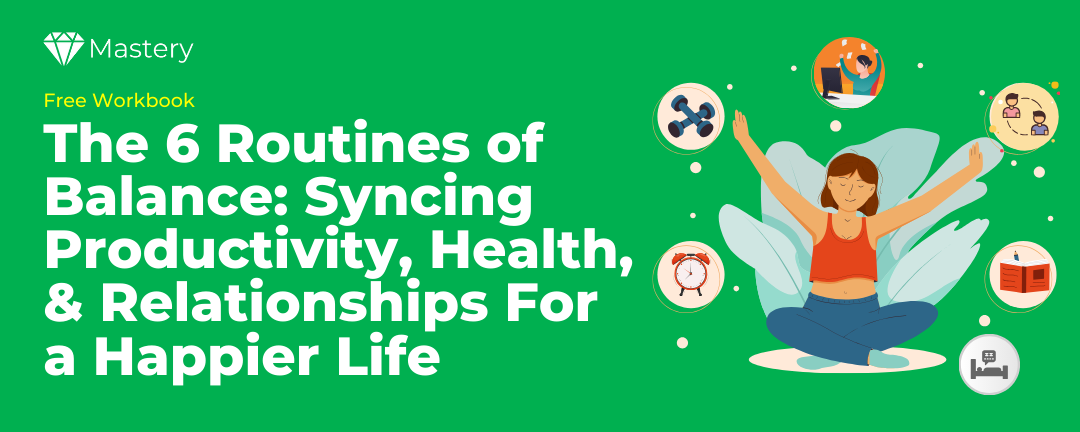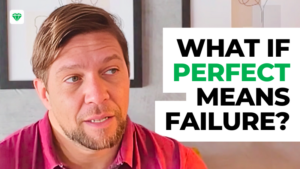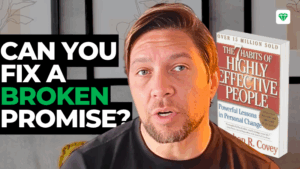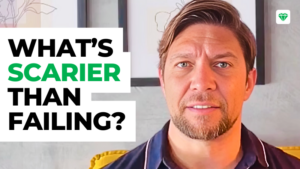
.
✅ FREE WORKBOOK: The 6 Routines of Balance: Syncing Productivity, Health, & Relationships For a Happier Life
Podcast version:
We’ve all heard the stories.
Mozart, this child genius, composing symphonies before most of us even learn to tie our shoes.
Or Einstein, casually rewriting the laws of the universe like it’s a weekend project.
It makes you wonder—are some people just born to be great?
Or everything we’ve been told about talent is a lie?
In Talent is Overrated, Geoff Colvin says:
“Great performance is not reserved for the preordained few. It is available to you and to everyone.”
So, what if talent isn’t the key to greatness at all?
What if the real secret lies in something anyone can achieve?
Stick around—because this might just change how you see your own potential forever.
The Fallacy of Effortless Genius
So let’s start with an idea that might surprise you—‘The Fallacy of Effortless Genius.’
What if those stories about Mozart, Einstein, and others—are missing the most important part?
We love to celebrate the end result—the symphonies, the theories—but how often do we ask about the process that got them there?
Could it be that we’ve been so dazzled by the brilliance that we’ve overlooked the grit?
It is true and impressive that Mozart was performing for royalty by the age of 6, but that moment was built on three years of relentless practice.
Starting when he was only 3 years old, repeating scales and studying compositions daily, guided by his father’s strict mentorship while others kids played outside.
And Einstein? He worked on what would become the theory of relativity for over a decade.
Michelangelo once said:
“If people knew how hard I worked to get my mastery, it wouldn’t seem so wonderful at all.”
Maybe skill mastery isn’t about being naturally gifted. What if it’s about showing up, even when it’s hard, even when it’s boring?
Think of talent like planting a seed. Sure, it might be a strong seed, but without watering it, without sunlight and care, nothing’s going to grow. Could consistency, not talent, be that sunlight and care?
Here’s a question for you:
How often do you wait to feel ready before starting something?
Waiting for the perfect time, for inspiration to hit, for some kind of sign that says, “Now’s your moment!”
But what if waiting is the reason we’re stuck?
What if the secret to achieve what we want in life is not about being ready at all, but about starting before we feel ready?
So here’s an idea:
What’s one thing you’ve been holding back on because you don’t feel naturally good at it but it’s calling you?
Today—just today—give it 10 minutes. No expectations, no pressure to be amazing. Just do it and pay attention to how you feel.
Because maybe mastery doesn’t belong to the “gifted.” Maybe it belongs to anyone willing to take at least 10 minutes a day to show up, one imperfect step at a time.
Consistency as the Sculptor of Identity
But if mastery isn’t about talent, then what is it about? Well, what if we see Consistency as the Sculptor of Identity?
Think about it:
How many times has your life been shaped by small actions that, at that moment, didn’t seem like much?
Yet, when we all look back in life, we find that many decisive moments seem to derive from those small actions.
The very things you do every day, without thinking much about them, are the ones shaping your skills, habits, and even your sense of who you are.
Think about it—if you consistently prioritize kindness in your interactions, you’re not just practicing kindness; you’re becoming a kind person.
If you consistently avoid challenges, you’re not just skipping one difficult thing; you’re reinforcing a habit of avoidance.
So, here’s a thought:
What if consistency is less about discipline and more about identity?
Let me explain:
You procrastinate because you don’t have a reason not to. Discipline derives from disciple. Disciple to a philosophy.
A philosophy will give you a destination and the destination will give you a reason to move.
So you don’t try to be disciplined, you try to be clear about who you should be and who you should not be, and that will give you a reason to be disciplined.
Because in the end, it’s the quiet, consistent actions that carve out who you are and what you master.
You become what you repeat.
What if Feeling Stuck Means You’re Growing?
Ok, but what happens when you’ve been consistent and it still feels like nothing is changing? You’re showing up, putting in the effort—but the progress just isn’t there.
That’s when it’s tempting to think you’re failing.
But here’s a thought: what if feeling stuck is actually part of the process? What if it’s not a sign of failure, but a sign of growth?
What if Feeling Stuck Means You’re Growing?
Think about it: growth doesn’t always shout. Sometimes, it’s like the roots of a tree spreading deep underground. You don’t see much happening on the surface, but everything important is going on underneath.
How many times have you looked back on a time when you felt stuck and realized it was the starting point for something big?
Maybe not right away, but eventually, you can see that’s when things were quietly coming together. It’s easy to miss it in the moment because we’re so focused on progress being constant and visible.
But if that’s the case, why does feeling stuck feel so bad? Could it be because we’ve tied success too closely to moving forward all the time? What if that pause is part of the process and not some kind of failure?
Here’s something to think about:
What if you didn’t rush through those “stuck” moments? What if, instead, you got curious?
What if being stuck is not a stop sign, but a mirror?
Could it be showing you something about patterns you’ve been repeating, assumptions you’ve been holding onto, or even the next step you haven’t noticed yet?
Instead of trying to push past it, what would happen if you just sat with it for a bit? Ask yourself:
What’s resisting? What’s shifting? What’s asking for my attention?
Sometimes growth isn’t about pushing forward—it’s about paying attention to what’s already happening. So, what if today, just for now, you leaned into the pause?
Your mistakes will always tell you the truths you need to hear.
When we talk about mastery, we’re not talking about some effortless gift that only a few get to have.
In fact, even Einstein wasn’t the most intelligent scientist of his time. That title likely belonged to Henri Poincaré, whose IQ and intellectual range were unmatched.
But what set Einstein apart wasn’t just raw intellect—it was his ability to persist, to question assumptions, and to keep refining his ideas long after others had moved on.
We’ve touched on how consistency shapes us, how feeling stuck doesn’t mean you’re failing, and how growth often happens beneath the surface, when it seems like nothing’s changing.
The big picture is that each small action is a step forward, even if it doesn’t feel like it right now.
Because every choice, every moment of showing up, is shaping you into something greater. So, the real question is:
Will you keep moving forward, even when you don’t see the results yet?
Because true mastery isn’t a stroke of genius—it’s a masterpiece built one deliberate brushstroke at a time.




